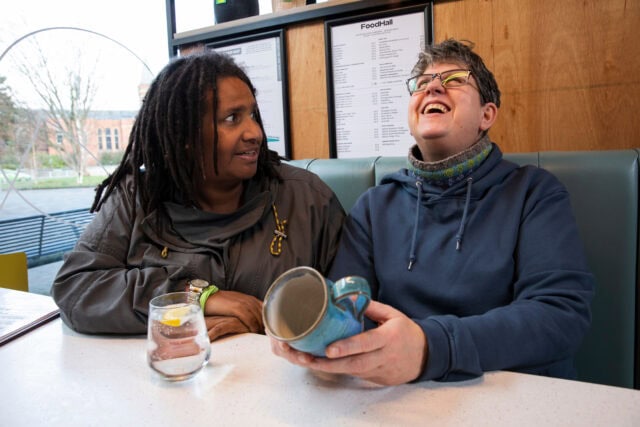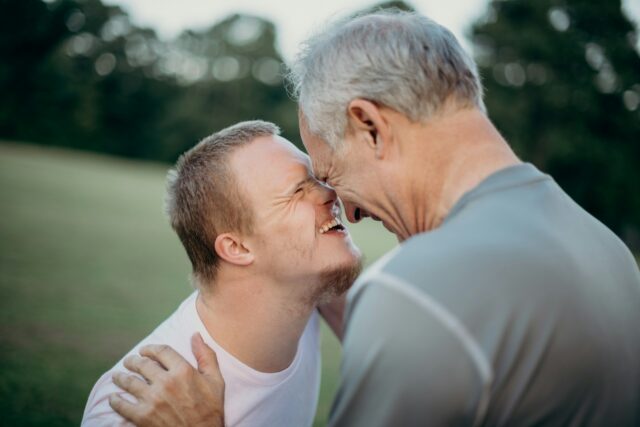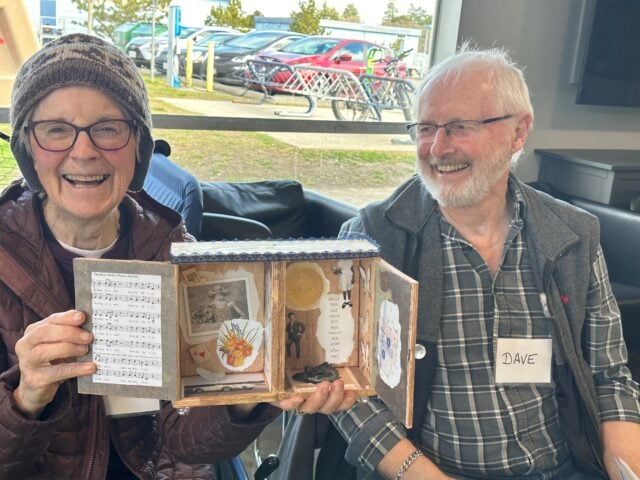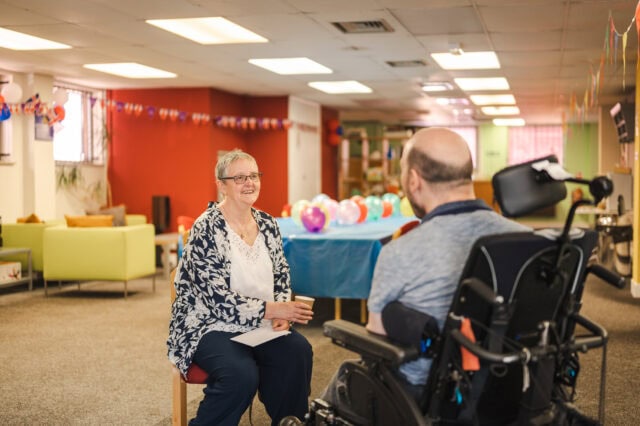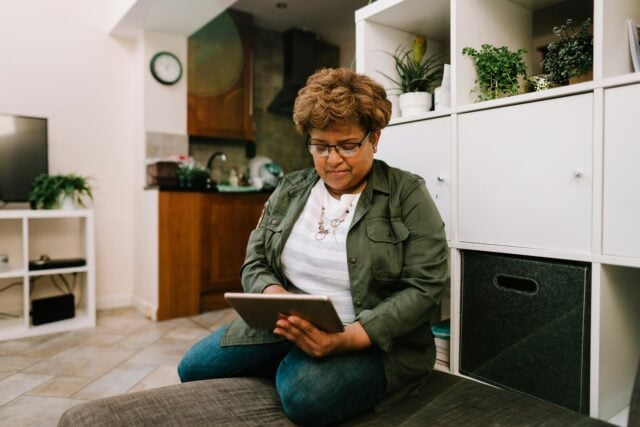By Meaghan Adams, PT, PhD
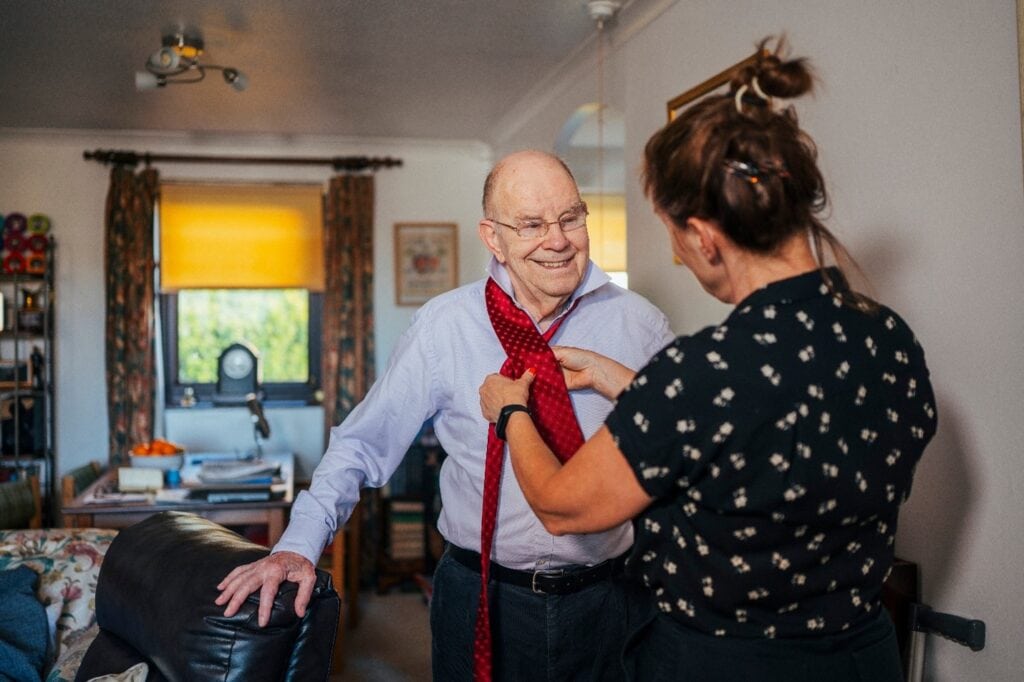
According to the Canadian Centre for Caregiving Excellence, one in four Canadians currently identifies as a caregiver, but the true number is likely much greater than we know. The late First Lady of the United States, Rosalynn Carter, Founder of the Rosalynn Carter Institute for Caregivers in Georgia, said, “There are only four kinds of people in the world — those that have been caregivers, those that are caregivers, those who will be caregivers, and those who will need caregivers.” As caregiving is linked to a higher risk of developing dementia, it is critical that all past, present and future caregivers understand their risks and take steps to protect their own brain health.
The Defy Dementia podcast by Baycrest explores caregiving as well as other dementia risk factors, such as hearing loss, lack of exercise, and even air pollution. In addition to podcast episodes, Defy Dementia provides videos and infographics sharing evidence and strategies from scientists, medical experts and people with lived experience.
How caregiving can increase dementia risk
In Defy Dementia’s caregiving episode, Dr. Ho Yu, from the University of Toronto, tells listeners that spouses of people living with dementia are at a six-times higher risk of developing dementia themselves, compared to individuals who are not caring for a person living with dementia.
Because caregivers are often the sole support system for people living with dementia, they can experience social isolation, which itself increases dementia risk and is also associated with depression, another risk factor. In addition, being socially isolated can lead to feelings of loneliness, which may increase stress levels, in turn also raising dementia risk. Similarly, caring for someone living with dementia can negatively impact sleep and may leave caregivers with less time for exercise, healthy eating or taking part in hobbies or activities that stimulate their brains. All of these on their own are dementia risk factors and, when taken together, place caregivers at particularly high risk of developing dementia themselves.
How caregivers can protect their brain health
The good news is that all of the above risk factors — social isolation, stress, sleep, exercise, diet, and cognitive engagement — are things we have some control over. For caregivers, though, that can mean a bit of a mindset shift. Caregivers often prioritize someone else’s needs above their own, but it’s important to take care of themselves so that they can take care of others.
To explore this topic, the Defy Dementia caregiving episode featured Katie Brandt, of the Massachusetts General Hospital Frontotemporal Disorders Unit, who is a caregiver herself. Katie shared how the stress of caregiving began to affect her physical and mental health and the steps she took to help herself. For Katie, that meant joining an exercise class that provided free daycare for her child and enrolling the two people in her life living with dementia into adult day programs. For other people, it might mean finding ways to make it easier to eat healthy foods, committing to counselling appointments to manage stress, joining a support group, or getting overnight care for the person living with dementia to help the caregiver sleep at night.
While it may look different for everyone, caregivers need support to take care of themselves. Caregiving is a team sport, and everyone benefits when more people are included. As Katie says, “It is not a failure to say that you need help but in fact an act of courage and love.”
Defy Dementia is hosted by Canadian author and broadcaster, Jay Ingram and Dr. Allison Sekuler, President and Chief Scientist, Baycrest Academy for Research and Education, and the Centre for Aging + Brain Health Innovation. To learn more about Defy Dementia and access the videos, podcast episodes, and infographics, visit www.defydementia.org
—
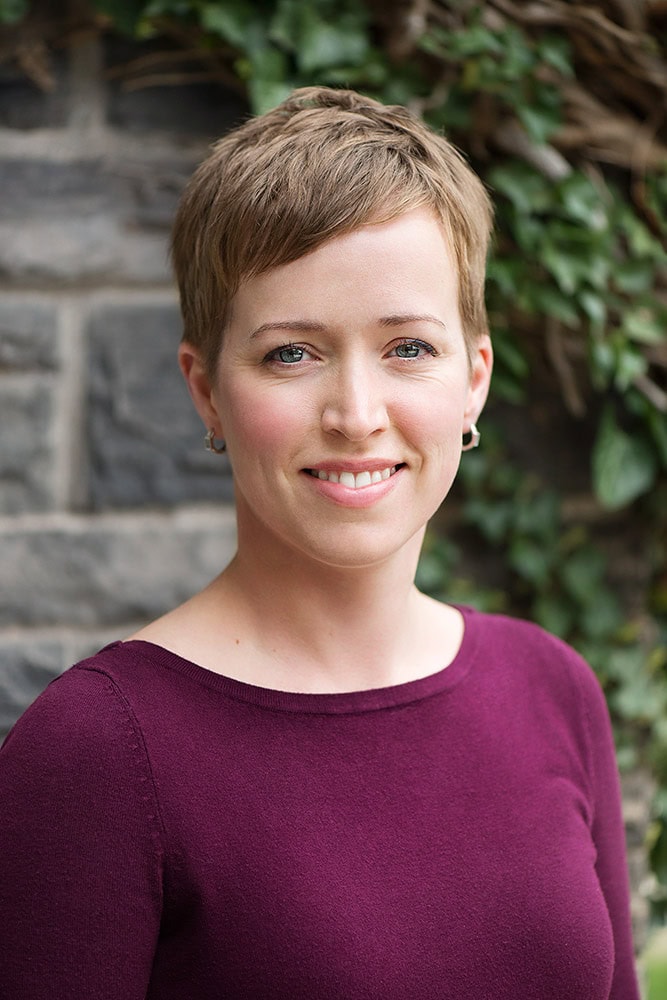
Meaghan Adams is Manager for Simulation & Virtual Learning at the Baycrest Academy for Research & Education.
Would you like to curate a resource list for the Behaviours in Dementia Toolkit? Reach out to CCSMH knowledge broker Nick Ubels at [email protected]

